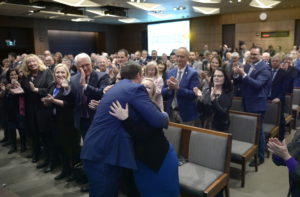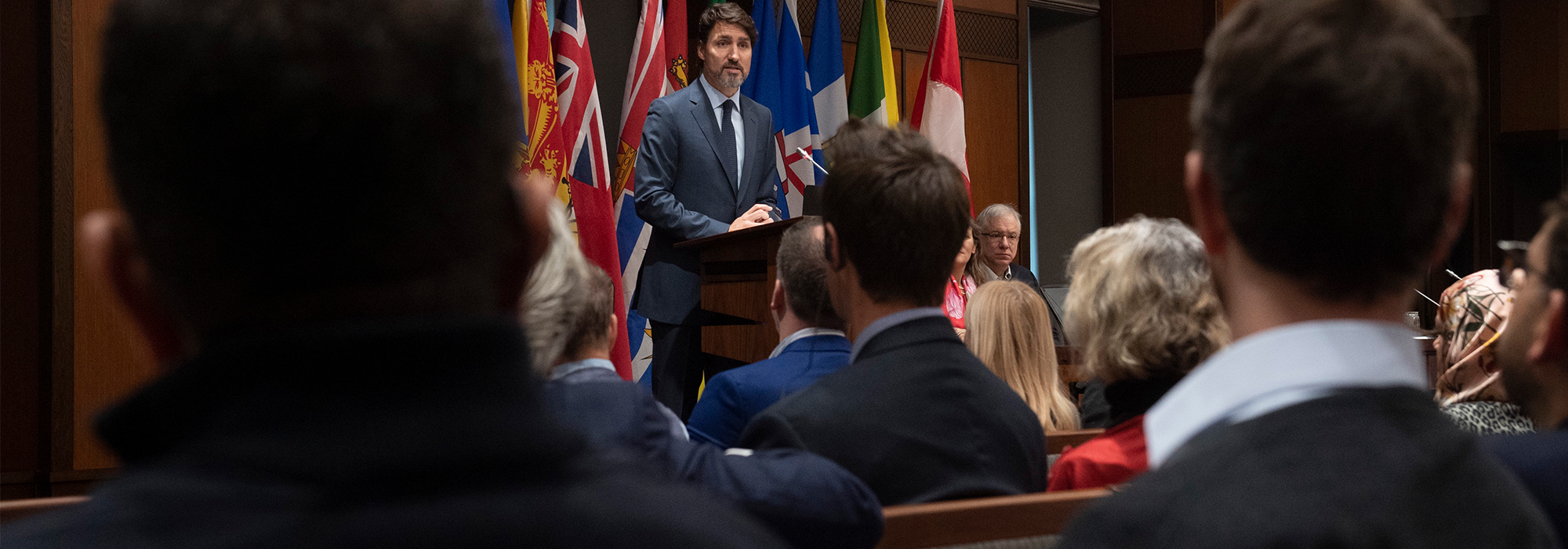
In his recent book, A Time to Build, the American writer and thinker Yuval Levin observes that the crisis of American democracy results from the failure of institutions. Institutions have become derelict because the people inside them no longer bother with the upkeep, he argues. Instead, everyone is incentivized to behave like an outsider, and treat institutions as platforms for power and performance rather than collective action forums that bestow dignity and responsibility.
This observation resonates in Canada, too, particularly in observing the pinnacle institution of our democracy – the House of Commons. In the Samara Centre for Democracy’s recently released book, Real House Lives: Former Members of Parliament on How to Reclaim Democratic Leadership, we document how MPs’ jobs have changed, and how those changes are contributing to a diminished sense of shared stewardship of Parliament.
The book is based on long-form, intimate exit interviews with more than 50 former parliamentarians who left after the 41st Parliament in 2015. They come from across the country and the political spectrum. The interviews reveal serious, publicly minded people who typically went into politics for the right reasons and are proud of their time there. But many also left frustrated, and worried that the institutions are not being cared for.
In Parliament, ever-encroaching partisanship and centralization of power in the office of the Prime Minister and party leaders mean the role of the MP is diminished, and the tools for the job are becoming disused or misused. This is a very old story, but ex-MPs did describe concerning changes of the recent past. For example, committee work — traditionally an escape from empty posturing — is sometimes repurposed to litigate petty partisan differences rather than carefully scrutinize legislation. One MP described to us how they were told to vote down amendments from another party that would correct typos in a bill because “we don’t want to give them the win.”

Some MPs admitted to not knowing how best to use the limited agency they had, and having no chance to learn. Private Members’ Bills and motions, the rare opportunity given to ordinary MPs to propose concrete solutions or set out a vision, are often rendered meaningless — used to fill our calendar with symbolic national days that, once created, are quickly forgotten. As one MP put it, “to waste time on Tree Day… those are not the things my constituents sent me to Parliament for.”
MPs spend most of their year away from Parliament. In the constituency especially, there is a diminished sense of what the appropriate role of a parliamentarian should be. MPs and their staff have thrown themselves into casework: basic customer service provisions like helping constituents deal with problems with government programs, the kind of work that is rightly the responsibility of the government. The impulse to help constituents is honourable. But this obligation means MPs don’t always have the capacity to commit to more effective or innovative forms of local democratic engagement.
Constituency work also crowds out parliamentary work. One former MP described sending all of their staff to the constituency office to deal with the volume of casework, being left alone in Ottawa to do all their own research and analysis late into every night: “If the Confederation Building stunk of popcorn, it was my fault.”
Central to all aspects of the MP’s life is the party — which MPs describe as providing support and community, but also as posing perhaps the greatest single obstacle to more effective and responsive representation. Suffocating party discipline is mostly the fault of leaders and their staff. But the interviews reveal other dimensions to this problem, too, such as self-policing by other caucus members. Step out of line too often, and your colleagues don’t need to be told to stop inviting you to pizza and wings night. Toxic partisanship within and between parties is hurting the institution of Parliament, and corroding morale. As one MP put it: “empty, nihilistic, repetitive partisanship tires everyone out. It’s exhausting. It’s frustrating. It’s humiliating… for those taking part.”
There are procedural and mechanical changes that can help mitigate some of this behaviour. The book lays out a platform of reforms that could help reallocate power within Parliament. For example:
- Changing how MPs are appointed to committees could reduce the power of leaders, and create viable alternative career paths for ordinary Members.
- More transparent accounting and making timelier and better-quality information available could empower MPs to seriously scrutinize government activities.
- Constituency work could be reimagined, by relieving MPs of administrative responsibilities and giving them the necessary resources for innovative local democratic engagement.
But the harder and probably more consequential change would be to Canada’s public leadership ethos — in how we understand the role of elected representatives, and in how those representatives treat our institutions.
Democracy is for the people, and it happens in streets, and living rooms and on the shop floor. But leadership matters, too. In fact, volumes of political science scholarship remind us just how much leadership matters. Despite our cynicism, we still defer to politicians. Our policy preferences are strongly shaped by the positions or framing adopted by leaders. Norms — our views about what appropriate democratic behaviour is — are heavily influenced by our leaders’ performances.
So while democratic renewal requires civil society-building, direct action and public deliberation, it also needs leadership. But it should be a plural leadership — not from a tiny cadre of party leaders and their staff, but from the 338 individuals we send to Ottawa from every part of Canada, to participate in the messy business of collective decision-making.
This requires reform within Parliament and within parties. But some of this also starts with MPs themselves. They have to recognize themselves for the insiders they are, understand their role and how irreplaceable it is, and see the responsibility they owe to our institutions and democracy.
Photo: Prime Minister Justin Trudeau speaks to members of caucus on Parliament Hill in Ottawa, Thursday, January 23, 2020. THE CANADIAN PRESS/Adrian Wyld
Do you have something to say about the article you just read? Be part of the Policy Options discussion, and send in your own submission. Here is a link on how to do it. | Souhaitez-vous réagir à cet article ? Joignez-vous aux débats d’Options politiques et soumettez-nous votre texte en suivant ces directives.









